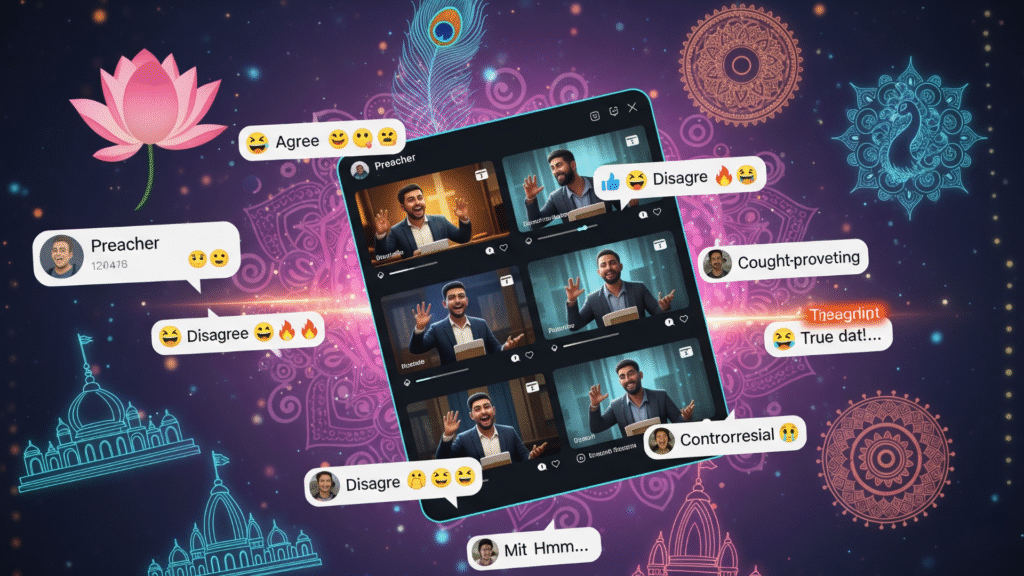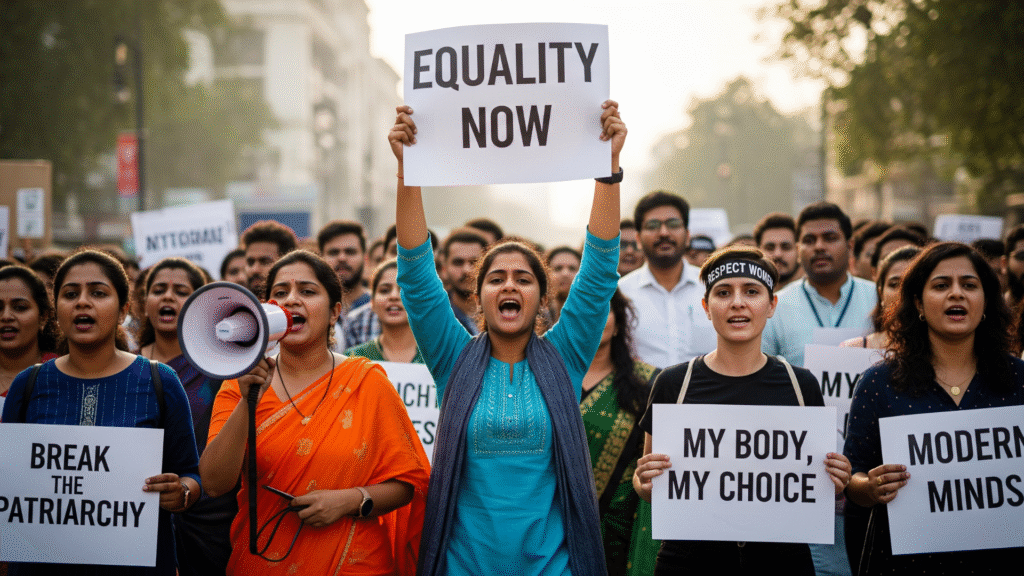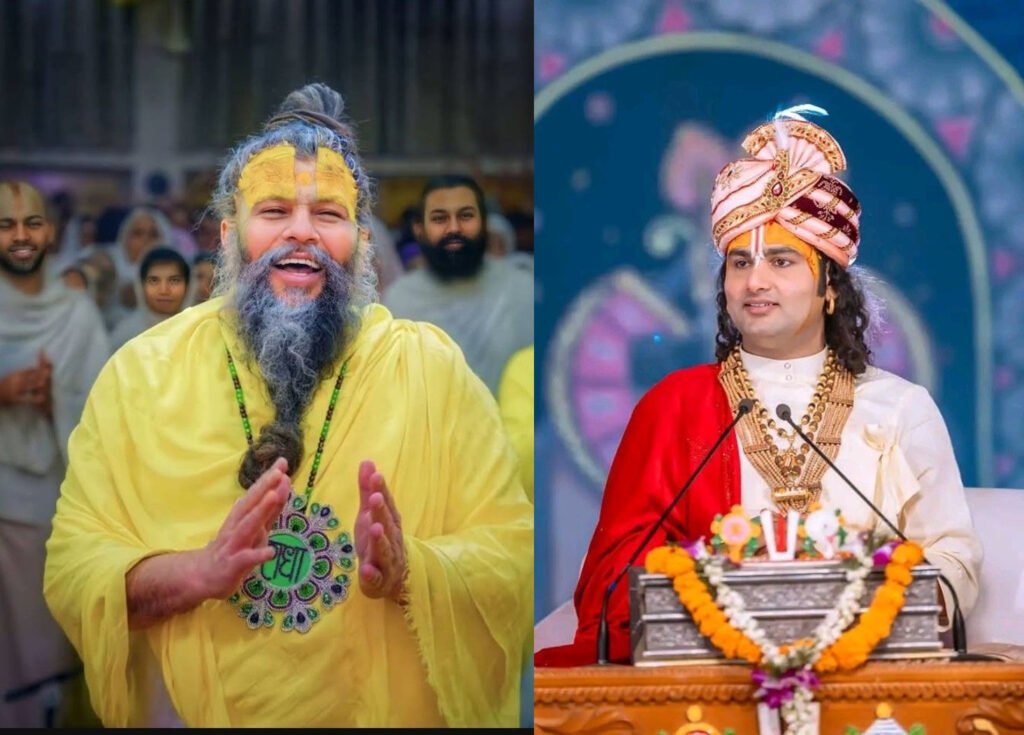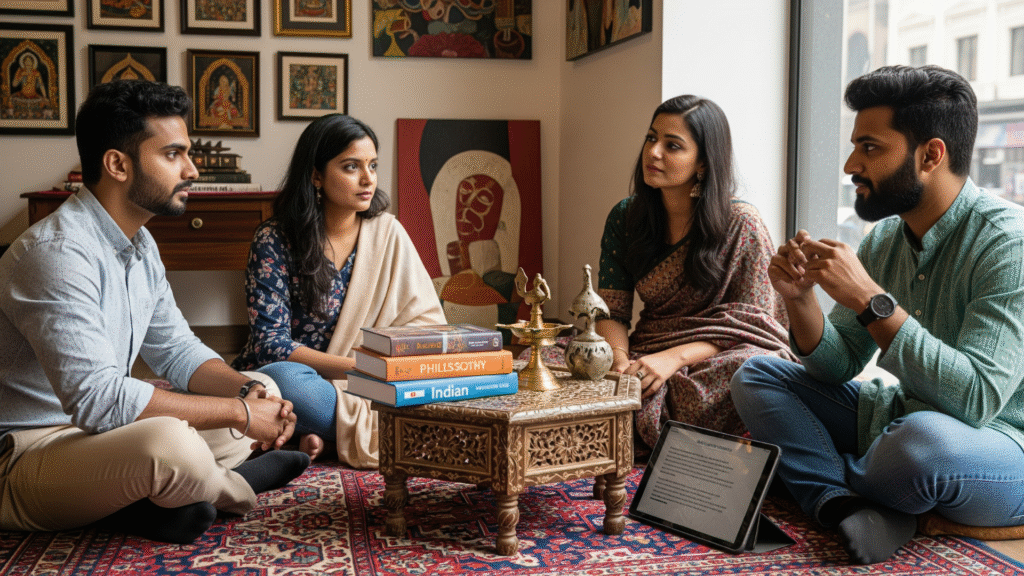Ever wondered how a single sermon can ignite nationwide protests, celebrity clapbacks, and deep societal reflections? In August 2025, spiritual leaders Premanand Maharaj Ji and Anirudh Acharya found themselves at the heart of a storm over comments on youth relationships, women’s purity, and modern ethics. This isn’t just drama—it’s a window into how tradition and progress collide in today’s India. Let’s unpack the facts, reactions, and hidden layers that make this controversy so intriguing.
The Spark: What Exactly Was Said?
Curious about the words that set social media ablaze? Premanand Maharaj Ji, a beloved figure from Vrindavan known for his devotional teachings, shared views in a viral video linking failed marriages to premarital relationships. He suggested that out of 100 young women today, “hardly two to four remain pure,” implying past affairs erode commitment. Similarly, Anirudh Acharya, a storyteller from Mathura, remarked in a sermon that women marrying after 25 often carry the baggage of multiple relationships, with their “youth slipping away” leading to behavioral “slips.”
These statements, rooted in traditional ideals of chastity and devotion, quickly spread via clipped videos on Instagram and YouTube. But why did they resonate—or revolt—so strongly? Experts point to India’s shifting demographics: with delayed marriages and rising live-in relationships, such views challenge the evolving norms of a youthful nation where 65% of the population is under 35.

The Backlash: Protests, Threats, and Celebrity Voices
What happens when spiritual advice meets modern outrage? The response was swift and fierce. In Mathura, female lawyers staged protests at the district court, demanding legal action and involvement from the National Commission for Women. Hashtags like #StopMisogyny and #ModernIndia trended, amassing millions of views as users accused the leaders of promoting outdated, sexist ideologies.
Celebrities amplified the noise: Khushboo Patani, sister of actress Disha Patani and a former Army officer, fired back in a video calling the remarks “anti-national” for their double standards. On the flip side, stars like Ankita Lokhande and Rajiv Adatia defended Maharaj Ji, framing his words as honest societal observations applicable to all genders. Meanwhile, Maharaj Ji faced chilling death threats on Facebook, highlighting how online debates can escalate to real threats.
Intriguingly, this mirrors global patterns—think of similar controversies in the West over influencers’ takes on gender roles. Could this be India’s moment to redefine spiritual discourse?

Apologies, Clarifications, and Deeper Contexts
Ever questioned if context changes everything? Both leaders responded amid the uproar. Acharya posted an apology video, claiming edits distorted his message—he meant “some women, not all,” and stressed character for everyone. Maharaj Ji doubled down in a follow-up, positioning his advice as ethical guidance rather than judgment, with supporters like UP CM Yogi Adityanath backing him against “politicization.”
This isn’t Acharya’s first brush with controversy; past comments on mythological figures like Sita and Draupadi have drawn ire. Sociologists note these incidents reflect broader tensions: India’s rapid urbanization and digital access are exposing traditional teachings to scrutiny, forcing leaders to adapt—or apologize.

Societal Ripples: Tradition vs. Modernity
What if this debate reveals more about us than the leaders? At its core, it’s a clash between age-old values and contemporary realities. With India’s average marriage age rising to 25+ for women (per recent NFHS data), concepts like live-in relationships challenge norms once seen as sacred. Yet, surveys show 70% of urban youth value personal freedom over tradition—sparking curiosity about how spirituality evolves in a digital age.
Positive outcomes? It could foster dialogues on gender equality, consent, and mental health in relationships. For instance, AI tools (a field you’re exploring, Lakshaya) are now being used for fact-checking viral clips and moderating online hate, potentially preventing future escalations.
Challenges and Hidden Opportunities
Ponder this: How do we balance respect for elders with calls for progress? Challenges include polarization—supporters see defense of “dharma,” while critics spot patriarchy. Misinformation via edited videos adds fuel, and safety risks (like threats to Maharaj Ji) underscore the dark side of virality.
On the flip side, opportunities abound: Youth-led campaigns could promote inclusive ethics, and content creators (like your “Think Rich with AI” channel) might use this to discuss AI’s role in ethical storytelling. Imagine data analytics revealing trends in public sentiment—perfect for your career goals!
What Can Curious Minds Do Next?
- Dig Deeper: Watch full sermons for context and cross-check with reliable sources.
- Engage Thoughtfully: Join or start discussions on platforms promoting balanced views—perhaps even in Hinglish for wider reach.
- Innovate: As a content creator, explore AI-driven tools to analyze such debates, turning controversy into learning opportunities.
Conclusion & Call-to-Action
This controversy isn’t just headlines—it’s a mirror to India’s soul, blending devotion with debate. What hidden truths might it reveal about your own views on love, tradition, and change?

Curious about how tradition shapes your life? Do these statements challenge or confirm your beliefs? Drop your insights below—let’s uncover the bigger picture together!
“In the dance of old and new, curiosity lights the path to understanding.”
– Samast India Editorial

